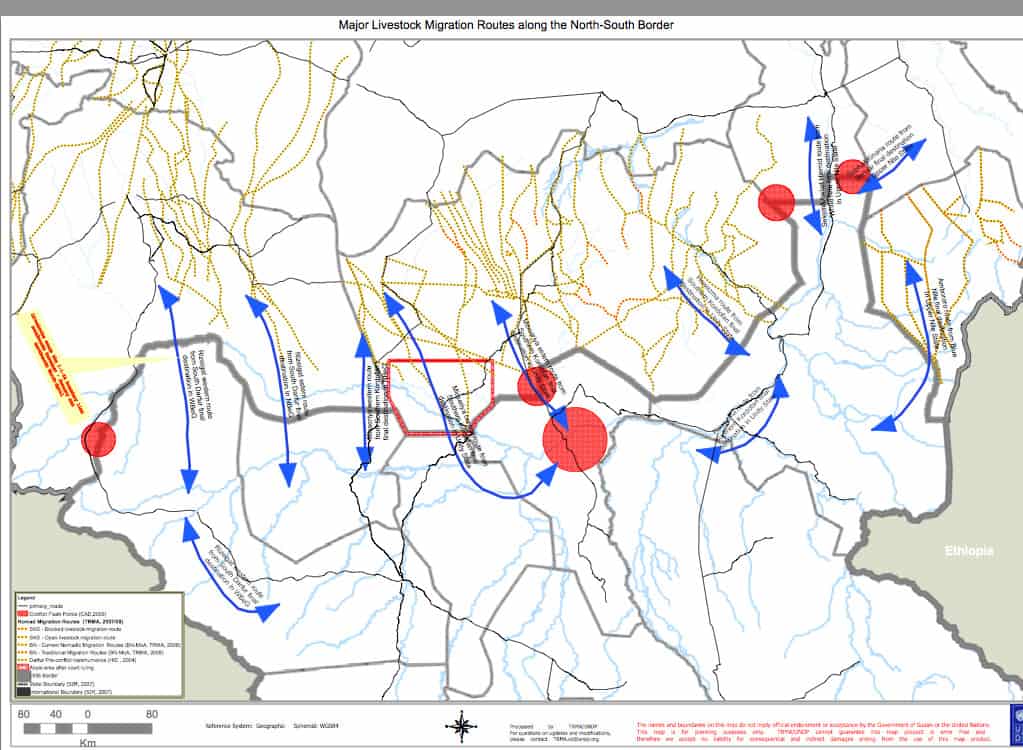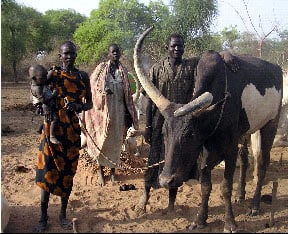 Posted below is an series of stories about an American group’s work among the Dinka tribe of South Sudan.
Posted below is an series of stories about an American group’s work among the Dinka tribe of South Sudan.
Called the Nehemiah Team, this student group worked in and out of the Cattle Camps of the world’s newest country.
If you’re interested in how you and your church can be involved in South Sudan, feel free to contact us at
Contact Us!
We love to hear from readers at CreekBank Stories!
For Snail Mail, mail to:Creekbank Stories
PO Box 6060
Alexandria, LA 71307
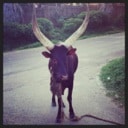
Going to a South Sudan Dinka Cattle Camp with the Gospel
Told by 5 person “Nehemiah Team”
I will be happy to give credit for this article as I have more information. In the meantime, enjoy it and let God lead you on how you might be involved in South Sudan.
What is the Nehemiah Team? A summer (52 days) assignment for students to make a difference overseas.
More at http://www.nehemiahteams.com
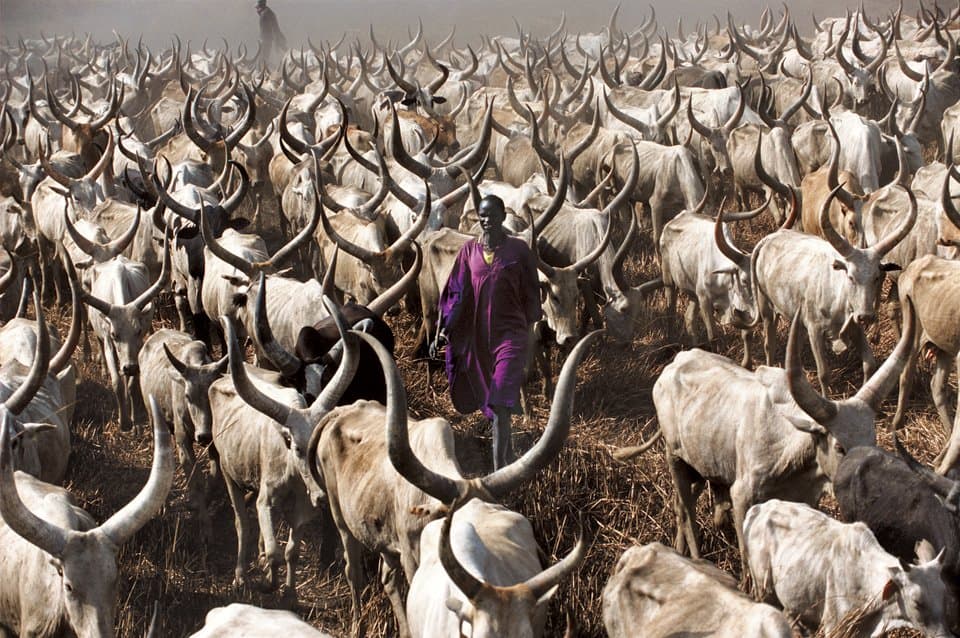
What is a cattle camp? View BBC story
1. We got to the cattle camp on Friday and set up our tents and shelter. The people immediately surrounded us while we set up our things, some even tried to help. We walked around the camp and met some of the people. That night some men came to our tent and sat with us. They asked us what we were going to do there and Jermaine said that we were there to teach the word of God. He then told them a story that went from the creation of the world to the resurrection of Christ. Right off the bat the men were asking questions such as “But what about the bad things I’ve already done?” We had a great conversation about the gospel and at the end one of the men said, “You come here and teach us the word of God, and then you leave and the people forget. You could give us someone here who is trained in the word of God so that we could keep a church going here.”
The next few days we had a decent turnout for the storying sessions. The first day, Saturday, we told the stories about making good decisions and many of the men there said things like “It is good for you to come here and teach us these things from the word of God.” That night the men started dancing and a few of our guys joined in. The people really enjoyed this.
The next day we got a drum and had church. Abraham told us that they’ve never had a church service on this cattle camp so this was the first. We sang a Dinka song, gave a testimony, sang an English song and then told stories about creation, the angels and the fall of man. That night some of our guys had foot races, wrestling matches and spear-throwing competitions with the Dinka men and then did some more dancing. Later that night the men came back to our shelter and talked more about their need for a church. We talked with them and asked our translator for advice about what we should do, and they said that they would go and talk amongst themselves and decide who their leaders should be, and they’d let us know the next day.
On Monday we told the last two story sets, one about AIDs and one about the power, death and resurrection of Christ. After the last set of stories we asked the men if they had made a decision about the leaders. It turns out that on Sunday a man moved into the cattle camp who knows the Bible, was one of Abraham’s (our translator) youth in the past, and was willing to help lead the church in the cattle camp. They decided on three men including this one, they were Abraham Majok, Isaac Mayom, and a man named Mapuar.
On Tuesday we met with these men and talked about what we needed to do to get them trained, and they said that they probably needed someone to come to the camp and train them. We decided to come back to this camp next week and start some training with these men.
The part that we didn’t like was having to tell people no all of the time. Some of them thought that we were only there to give them things. Kids were constantly saying “Give me this” and then getting mad at us when we said no. One time I even started roughhousing with a boy because he tried to push me when I said no. Some of the kids and men even tried to get into our vehicle to take things while we were packing. Also, at least one of the leaders was probably only showing interest in what we were saying so that he could get something out of us. The last day we were there he was taking things from me and trying to keep them and I had to be pretty forceful to get them back. When he realized that we weren’t going to give him anything he got upset and sat on the ground looking mad. We wanted to talk to the people one last time before we left, but this man said that there was no time to talk to them before we left.
Cattle camp was fun because the people were so welcoming. One of the women brought us milk and other food items all week long, and the men were always hanging out with us and were excited when we took part in their activities. It was also pretty amazing to see how God went before us, and the people were ready for us when we came. Even the night we were praying for a leader, one was moving into the camp. The people were also offering us cows (a sign of friendship) and wives all week long, it’s good that they were so accepting of us.
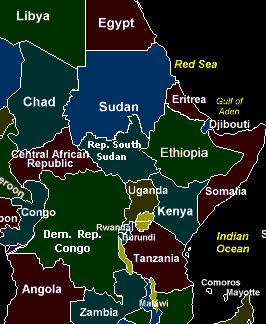
How long between these first two visits?
Cattle Camp Round 2
The first day we got there was around 12 o clock. We set up quickly and begin settling in. When we finally sat down to break, when we heard moaning from across the field and seen an older Dinka lady being restrained by other Dinka ladies. This went on for what seemed 15 minutes. The woman who was hysterical finally found composure and made it back to her tent.
Later we found out the reason was her three year old son had just drowned in a close by river. This set the mood for the rest of the day of cattle camp. But, in spite of this many people were glad to see us remembering our names. Of course with that came the begging that started as soon as we got there.
The day was spent with the leaders and friends sharing conversation and sharing hospitality. The next day we dove into teaching first with Jermaine sharing the basics of salvation with the crowd and the hopeful cattle camp church leaders.
What had been three leaders had now dwindled down to one. We were somewhat disheartened by the news but very much as well expected it. Next we jumped into the spiritual warfare curriculum, sharing 5 stories on God’s power.
The crowd found this concept somewhat confusing but we remained patient while Shadrack while translating went very in depth in explanations. He remained very helpful the entire trip. The remainder of the day was spent relationship building with the Dinka men. The usual occurred with the men offering to scar our foreheads for us, offering us women, and the women bringing us milk. The next morning started off fairly normal.
Our car was broken into and we were missing the cups and rope. After discussing this matter with MaPar, one of the leaders he vowed to find these items for us and did just that. During the middle of our conversation we were interrupted by rebel cries from the young men in camp. Soon we saw a sea of AK47’s rushing intro the bush.
Men were fighting over the weapons and women were begging men not to go. We stood and watched men we spent these weeks ministering to rush right in front of us with a clear hunger for violence. All that remained was a few leaders, women, and children. So the next moments we spent asking men and women if we could pray for them about. Most of the responses was pray for my life, so we prayed with about 50 men and women one on one.
After discussing what to do and after receiving a rumor of a soldier being shot the leaders advised us to leave thinking they would strike at the cattle camps next. After we packed up our bags we made it safely back to our compound. The things we liked this week was we felt well protected by the leaders from retrieving our stolen items to advising us it was nice to have them around.
As well we now were familiar faces around the camps with people calling us by names and really warming up to us. What we didn’t like was the begging, as it sounds heartless to say that it gets frustrating constantly wondering if they really are listening to me or trying to con me. As well this week obviously we didn’t enjoy having our time cut short or having two of the future church leaders back out.
Overall our group dealt with the stressful situation very well. Although we all wonder things now like did we back out early? When will the fighting end? Can we come back next week? Through these discussions we all agree on one thing and that is Satan is trying so hard here. And he would not fight over something that was worthless and we know as hard as he works we have to work just as hard.
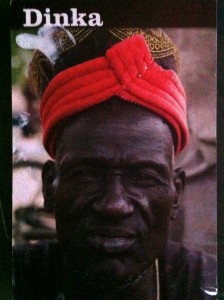 How long are they staying on each visit?
How long are they staying on each visit?
3. We got back to the Nyikor cattle camp on Monday and set up our camp. As soon as we got there people came over to greet us and stayed around to visit and help us set up the tents. We immediately noticed that the people who came to our camp had all tied blades of grass around their left ankles. We asked what this was about, and they told us that a “prophet” on the radio said that this would protect them from getting elephantitis.
After we finished setting up, about twelve people who were there at our camp started asking us to tell them Bible stories, so we scrambled to get some ready. We had a curriculum planned, but it didn’t start until Tuesday, so we told them stories that dealt with trusting God in areas of difficulty including sickness, suffering and even death.
That night as we were preparing our stories, I remembered that Peter Malual (the local man who came to translate for us this week) had told a story like this at church just the day before. He told the story of King Ahaziah who was injured, and instead of asking God he consulted a pagan god to see if he would get better. In the story, Elijah confronts the king asking him why he consults the pagan gods as if there is no God in Israel. I told Peter that he should share that story with the people, and after I told him how it applied, he agreed.
The next day, Tuesday, we were sitting around going over our lessons for the day, and Peter came to me and said, “I have a story ready to tell today.” I don’t remember what the story was…he told it all in the Dinka language, but the awesome thing is that he was doing it on his own without any coaxing from us. That night we showed the Jesus video and about 85 people came to watch it. After the video was over many people stayed around to talk and visit with us, and before they left one man said “Aren’t we going to pray first?”
On Tuesday our team was also hit with another health problem. Daniel woke up feeling ill, and ended up passing blood. We took him to the clinic, by the time we got there he was doubled over in pain. The doctor told us that Daniel has a kidney stone and should stay in the ward for a while. We’re still not sure when that’s going to pass, and Daniel is deciding what he needs to do now.
Since we were short one person, and we had planned the curriculum with four storytellers, I asked Peter to tell the stories that were assigned to Daniel on Wednesday and Thursday. Peter was excited to do this, and as he was telling the stories the people listened to him and reacted to him better than they did to us.
Wednesday morning we got up in the morning, and the leaders asked us to read a letter that had been delivered to one of them. It was in English, but it was poorly written and we could not make it out. After we gave the letter back, the leader went to his camp. We saw an old man walking around chanting and hitting the tie-down stakes where the cows were tied.
We found out that the leaders had hired a witchdoctor to come and bless their cows because they were afraid that something bad was coming. We were kind of discouraged after seeing this, and when it came time to teach that day we all felt lethargic and it was very hard to get motivated, the enemy here is very real.
Thursday we got up to tell stories again. While we were sitting and listening to Peter teach, a cow came and ate a page from Zach’s Bible. We packed up after the stories and left, one of the leaders tried to get some of our guys to stay until we came back. I guess we made some friends! We also talked to Isaac Mayom, one of the potential leaders, about training and Peter Malual offered to come back and work with him on a regular basis.
We told them that we would be back next Wednesday and stay through Sunday so that we could have church on Sunday. We plan to go Wednesday through Sunday, come out for two days and go back again from Wednesday through Sunday. Hopefully we’ll be able to accomplish something in showing them how to start a church.
Section 4 is missing.
5. This was the last week at cattle camp for the Nehemiah Team.
Last week we left because they were fighting, but when we went back to have church with them on Sunday we decided it would be okay to return. Monday morning we packed up and went back with the ultimate plan of staying until Sunday.
On Monday we packed up and went to set up our camp. When we arrived we were immediately greeted by the camp leaders and some of the other men who have become our friends over the summer. As we put up our tents and shelter, some of the men in the camp told us that they might be moving the camp on Tuesday. This is something that we had been hearing all summer long, that the camp was going to move soon, but up to this point it had not happened. When we asked around with our translator we had some mixed answers, some people said they were moving while others said it could be another five days. Monday night we spent time “relationship building” as we hung out with our new friends and even had a strobe light dance party.
On Tuesday we woke up and found out that the camp would not be moving that day, but we still had a problem with teaching because it was raining. It seems like all summer we’ve celebrated great victories in advancing the gospel with these people only to be immediately met with difficulty and/or opposition. This week was definitely a “low point in our ministry.” We woke up ready to teach this day, but nobody will come when it’s raining, so we waited for the rain to stop. When the rain stopped we went around and told people that we would be teaching, but many of them were worried that the rain would be starting again soon. Eventually about twenty-five of our regular attendees came to the teaching area and we began teaching, assuring them that if it started raining we would quit.
We finished all of the teaching planned for Tuesday. As one person was teaching, others were praying that God would hold back the rain until we were finished, and He did! We even had very long stories this time, the suffering of Joseph, Job, Stephen and Paul all communicated to the cattle keepers that following Jesus would not necessarily make their life easier, it would only give them an accurate take on life’s problems. The people were responsive, asking some good questions and reiterating parts of the teaching to us to ensure us that they understood. After the teaching was over some of us left to go get water from the well, and as we were leaving the rain started again. That night the camp leader told us that the camp would be moving early Wednesday morning.
Wednesday morning we woke up and most of the camp was already cleared out. As we packed up our things and got ready to leave, some people hung around asking us to give them a ride to the new camp. We tried to communicate to these people that our car would be full, but despite our warnings they waited and were upset when we left without taking them (the car was packed as full as it could be).
We returned to the compound in Akot and unloaded our things and left again to scout the new camp. Many of the local pastors told us that the new camp was unreachable by car, but we wanted to see for ourselves. If it was possible to park and walk each day, we were all willing to do this if it meant that we could finish our teaching with the people. We prayed that God would give us a way to get to the new camp, and He did. We drove to the new camp and found a few places that seemed like the “end of the road,” but they were all passable and we drove to the camp with no problem.
Thursday we packed our things and went back to the new camp to set up and finish teaching. We had an exciting lineup of stories ready including stories on standing firm, purity, holiness and prayer. We got to the new camp and set up our shelters, and noticed that there were many people whom we didn’t know. What we found here is that our friends from the old camp were here, but there were also many people from other camps. This camp is at least twice the size of the camp where we started.
This was good and bad for us at the same time. We were welcome at the new camp because the leader of one of the camps is now our good friend. Many of the people were familiar with us, but many of the people weren’t. We had become comfortable with the old group of people, and now we were faced with a whole bunch of people whom we didn’t know, and some of them weren’t so happy about our coming. We also met one of the men that was “left behind” at the old camp, and he was upset that we didn’t give him a ride and instead left him in an empty cattle camp. He told our translator that he didn’t want us here, and our translator told him that we weren’t here for him, we were here to share the word of God with the cattle camps.
We did have one encouraging thing happen while we were setting up the new camp. A boy from the old camp came over and he had my pocket knife with him. My pocket knife was stolen a week or two ago at the old camp, and this boy had found it and brought it back to me. I was thankful to get it back, and I wanted to give the boy a gift, so I took him a pair of sunglasses that I had brought with me. He took the glasses and said thank you, but a few minutes later he came to our camp with his older brother and gave them back. The older brother is the man who once told us, “We are just like the people of Ninevah…” and he didn’t want to be rewarded for doing what anybody should do. Typically, we were told, we shouldn’t even expect to get our things back.
Friday we got up and tried to set up a teaching time, but we were told that everyone was too busy. Since the camp had been unoccupied for a while there was grass to be cleared and mounds to build. The people were also building the shelters in which they will stay for the next few months. The people told us that we should teach in the evening, so we put it off until then, but in the evening we played the drums and told people that we were teaching, but nobody came.
Saturday we experienced the same thing with the teaching. We set up and asked people to come, but they were all busy setting up the new camp and had been set back by the rain, so teaching never happened. When one of our friends assured us that we would not get to teach on Saturday, and that Sunday would also be questionable, we went home.
We had brought gifts for about six of the men who had either become our good friends or who had been attending the teachings and been exceptionally responsive. We met with each of these men individually and told them something like this:
We’re happy that you have welcomed us here all of these weeks, and that you have been coming faithfully to the teachings. Your responses are very insightful and we are always filled with joy when we hear you respond to God’s word. My friends are going back to America in a few days, and they wanted to give you a gift. Hopefully you will welcome us back when we return.
They were all grateful and told us that when we’re away they tell stories and sing songs about us. Some were asking us to stay until they were finished so we could keep teaching, but we had to leave so that the men could get home.
Jermaine and I plan to keep going to this camp with Peter Malual (the “translator” who we’ve been encouraging to teach on his own). We told them that we would return, and we plan to go back and do what it takes to get a functional church with believers and leadership.
Contact Us!
We love to hear from readers at CreekBank Stories!
For Snail Mail, mail to:Creekbank Stories
PO Box 6060
Alexandria, LA 71307
 Creekbank Stories Curt Iles, Storyteller
Creekbank Stories Curt Iles, Storyteller
